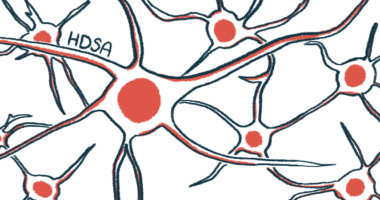Comfortability with Your Care Team Is Vital

I have very little knowledge about cars — how they work, how they run, and most importantly, how to fix them. I need to find someone who does know how to fix my car if it ever breaks down. Since my automobile is such a vital part of my life, I want a fixer with whom I feel comfortable — an expert I’d trust with my life.
That’s how my wife, Jill, thinks about medical treatment.
My view about doctors used to be this: I tell them what’s wrong, get their advice, and go home. I didn’t realize how different I was from Jill in that regard. To completely understand this difference, you need to understand a little bit about her.
I remember her explaining that she has sensory issues. That means she doesn’t like all of the following: her feet being touched; being approached from behind; her hair being played with; too much noise; or noise from multiple directions.
She also has what is called “white coat syndrome,” which is when her blood pressure increases as soon as we approach the door of a doctor’s office. It stays that way until we leave. I have always assumed that her sensory issues contributed to this kind of anxiety because it is difficult for her to deal with touch, especially from someone she doesn’t feel comfortable with or doesn’t know.
Since dealing with her issues has been such a big part of her life, Jill has made it her life’s mission to understand illnesses, injuries, and the human body. You can tell her that something hurts and point to it, and she will ask a few questions and then provide a diagnosis. In the years I have known her, she has never been wrong.
I share all this about Jill so that you can understand how important it has been to find a team to treat her. She is so knowledgeable that it was vital for her to find people she could trust; in other words, experts in their fields who would not talk down to her.
Because she was a caregiver to her father who had Huntington’s, she’s especially knowledgeable when it comes to the disease. She really needs someone who will listen to her and respect her views and opinions. She also highly prizes those who have high levels of empathy. She appreciates doctors who tell her that they understand her feelings and ask her how they can help make her more comfortable. It is amazing how much these few things can help with her ability to calm down and be present.
Earlier this year, we went to a symposium on Huntington’s sponsored by the hospital team at the Center of Excellence she receives care from. The entire team was there, on a Saturday. The information I gained on that day was priceless. The psychiatrist explained issues I may face as a caregiver and ways to handle them. The neurologist explained ongoing trials. The therapist talked about ways to help with physical symptoms, and the social worker made sure everyone was comfortable and was on hand to answer any questions.
We appreciated all the people who made that day successful. After we left, Jill said she felt like a race car driver, and they were her pit crew. She is willing to put her trust and her life in their hands, and that makes all the difference in the world to us, especially me, who as her caregiver wants to make sure I’m doing everything I can to ensure she gets the best possible care by the best possible people.
***
Note: Huntington’s Disease News is strictly a news and information website about the disease. It does not provide medical advice, diagnosis, or treatment. This content is not intended to be a substitute for professional medical advice, diagnosis, or treatment. Always seek the advice of your physician or other qualified health provider with any questions you may have regarding a medical condition. Never disregard professional medical advice or delay in seeking it because of something you have read on this website. The opinions expressed in this column are not those of Huntington’s Disease News, or its parent company, Bionews Services, and are intended to spark discussion about issues pertaining to Huntington’s disease.







Leave a comment
Fill in the required fields to post. Your email address will not be published.